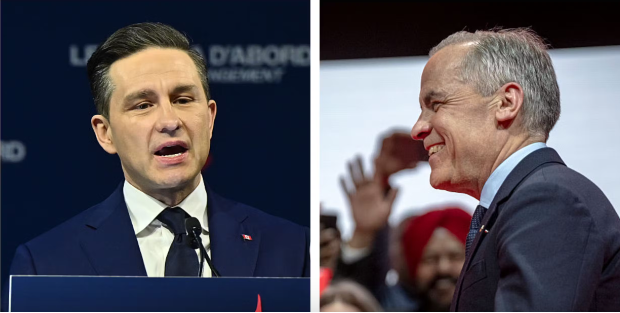Chinese Scientist’s Wife Barred from Beijing
The saga of He Jiankui, the Chinese scientist infamous for creating the world’s first gene-edited babies, has taken a dramatic and troubling turn. His wife, biotech entrepreneur Cathy Tie, revealed in a tweet thread today that she has been barred from entering China, where she planned to start a new life with He in Beijing. The couple, married just one month ago, now faces an uncertain future as Chinese authorities have also restricted He from traveling outside the country. Tie’s tweets, laced with defiance and concern, paint a chilling picture of a world where scientific innovation is stifled by political agendas and global power struggles.
“On this day last month, I married the most controversial scientist in the world. Now, we may never see each other again,” Tie wrote. “While I’m concerned about my marriage, I am more concerned about what this means for humanity and the future of science.”
Tie, who was born in China, raised in Canada, and spent much of her adult life in the United States, described her journey to join He in Beijing, packing up her belongings and her dog for the move from Los Angeles. But her plans were abruptly halted during a layover in Manila. “This morning, during my layover in Manila, I found out that China immigration had been instructed by police to deny my entry,” she tweeted. The news came as a devastating blow, not only to her personal life but to her vision of a borderless scientific movement aimed at reducing human suffering.
He Jiankui, often dubbed a “heretic” in scientific circles, gained global notoriety in 2018 when he announced the birth of twin girls whose genomes he had edited using CRISPR technology. The experiment, aimed at making the babies resistant to HIV, sparked widespread condemnation for its ethical violations and lack of transparency. He was sentenced to three years in prison in China, a punishment many viewed as a response to international pressure rather than a genuine rejection of his work. Since his release, He has remained unapologetic, vowing to “double down on germline gene editing,” according to Tie’s tweets.
Tie, a biotech prodigy who entered the industry at an unusually young age, sees He’s work as a revolutionary force. “When I met He Jiankui, I realized he was different. He was clearly a heretic,” she wrote. “Despite being cancelled countless times, he stood his ground.” She believes his vision for germline gene editing—altering DNA in embryos to prevent hereditary diseases—transcends national borders and petty politics. “I knew this technology would change the world, but it’s bigger than He Jiankui and China. It should be a borderless technology that helps all of humanity reduce suffering,” Tie declared.
The Chinese government’s decision to bar Tie and restrict He’s movements raises serious questions about the state’s intentions. Is this a move to silence a scientist whose work challenges global norms? Or is it a broader signal of China’s tightening grip on scientific innovation as it navigates tensions with the West? Tie’s tweets suggest the latter, warning that “science is now intertwined with politics, international relations, media, and defense.” She likened the power of biology to that of nuclear weapons, stating, “Science is dangerous because it is uncontrollable. It shifts power. We saw this with nuclear weapons. Biology will be more powerful than that.”
Critics of He’s work argue that germline gene editing poses profound ethical risks, including the potential for “designer babies” and unforeseen genetic consequences. Yet Tie contends there is a “double standard and ethical hypocrisy” in the global response to the technology. She pointed to voices like British author Matt Wridley, who has questioned the moral distinction between He’s gene-edited twins and other controversial biotechnologies, such as COVID-19 vaccines. According to Tie, He’s recent tweets have garnered “millions of views and support,” suggesting a growing public willingness to challenge the scientific establishment’s narrative.
Tie’s personal story is as compelling as her scientific convictions. Reflecting on her moral compass, she wrote, “When I was younger, I used to think of hypothetical scenarios that would test my morals and ask myself: ‘Would I donate to charity if no one knew about it?’ ‘Would I stand up for innocent people being hurt even if that is against the law?’” Now, with the world watching, she faces a real-world test of those principles. “Over the next few days, my own morals will be put to the test with the whole world watching. I have every intention to answer the same way my younger self would,” she vowed.
The implications of this saga extend far beyond one couple’s plight. Tie’s tweets expose what she calls the “veil of biotech hypocrisy” and the “brainwashing” of scientists trapped in a system that prioritizes funding and conformity over bold innovation. “Those trained in the scientific system are too brainwashed and financially paralyzed to act with agency and think for themselves,” she wrote. Her own background—spanning cultures and continents—has given her a unique perspective, one she claims makes her “immune to the brainwashing” that stifles her peers.
As the world grapples with the ethical and political ramifications of germline gene editing, Tie’s story serves as a stark reminder of the human cost of scientific progress. Her husband’s company, named Cathy Medicine in her honor, symbolizes their shared dream of a future where biotechnology serves humanity without borders. But with China’s latest actions, that dream appears under threat. “You can stop the person but you can’t stop the movement,” Tie asserted, signaling her determination to keep fighting.






